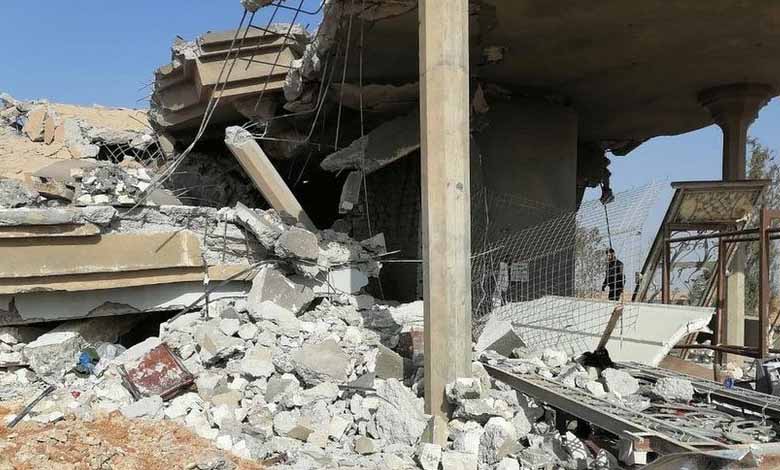Iran’s Violations in Syria

Daily movements by Iran and its militias to consolidate its presence in Syria, and a systematic plan to create a demographic shift, offer it the opportunity to locate itself within a crisis-battered country.
A malign agenda led by Tehran in Syria, unconcerned with aerial targeting, and its cold war with the Russians, but pursuing a destructive path of endless expansion and penetration, despite the high cost it pays each time.
Events in Syrian areas subject to Iranian movements include human losses suffered by Iran and its militias after they were targeted by air and land, as well as demographic change, which has become one of the stumbling blocks in the Syrian scene in light of Iran’s expansion and incursion into the entire territory of this country, according to the Syrian Observatory for Human Rights.
Violations and goals that threaten the Syrian interior and its demographic map prompted the Syrian Observatory to call on international bodies to work seriously to expel Iran and its militias from Syria and to bring those involved in killing and displacing Syrians to fair trials.
Violations
Iran-affiliated militias are wreaking havoc in the western Euphrates region by confiscating civilian property from homes, businesses, and agricultural land, transforming much of the property into weapons storage depots, military sites, and posts, and changing the names of many facilities to ones that are consistent with their ideology, sparking widespread public discontent.
Among the most prominent violations in 2021, the Afghan Fatimun militias, which are allied with Iran, informed the owners of agricultural land in villages and towns extending from the city of Mayadin to the town of Sabikhan in the eastern Deir Ez-zor countryside to calculate 10% of the total value of wheat and barley crops and grant them, on the pretext of protecting their land and facilitating their work.
The militias have threatened landowners with confiscation of their wheat and barley production if they refuse to provide the required percentage of their crops, and have also placed monitors on agricultural crops to verify the quantity of crops.
Residents of about 50 homes in the Syrian town of Abou Kamal were also warned to evacuate within a short period of time, according to the Syrian Observatory. According to the Observatory, the warning was issued at the request of the so-called “Friends’ Office”, which is directly affiliated with the Iranian Revolutionary Guard Corps.
In 2021, dozens of agricultural lands were confiscated in eastern Deir ez-Zor. The militia administration began by informing owners of agricultural land in the Hawi and Majri areas on the outskirts of Mayadin, east of Deir ez-Zor, to review its headquarters in the security square in Hay al-Tammo and to show proof of ownership of the land, after which it confiscated all the land whose owners, the vast majority of whom were outside Deir ez-Zor, did not attend.
According to the Syrian Observatory, the militias leased the confiscated land to relatives, relatives and close associates of local fighters.
Demographic change
What is happening in Damascus and its countryside is perhaps the best proof of this. In Eastern Ghouta, dealers from the city of Mayadin in Deir ez-Zor who are directly affiliated with the pro-Iranian faction al-Abbas, which operates under its command, continue to purchase real estate from residents in the Eastern Ghouta regions, through a person who has already bought lots of real estate in various areas.
According to the Syrian Observatory for Human Rights, the procurement process was concentrated in 2021 in the areas of Saqba, Jisreen, Kafr Batna, Beit Sawa, Hamoryah, Zebdine, Deir al-Asafir, Hutajtat at-Turkuman and Al-Maliha. They bought large areas of agricultural land, houses, restaurants, and parks that were damaged by the military operations in the past. They also purchased about 100 houses in the city of Al-Maliha, some of which were almost completely destroyed.
They also bought around 500 apartments and shops in Ein Tarma, mostly owned by people outside Syria, which were sold through agents in Eastern Ghouta.












